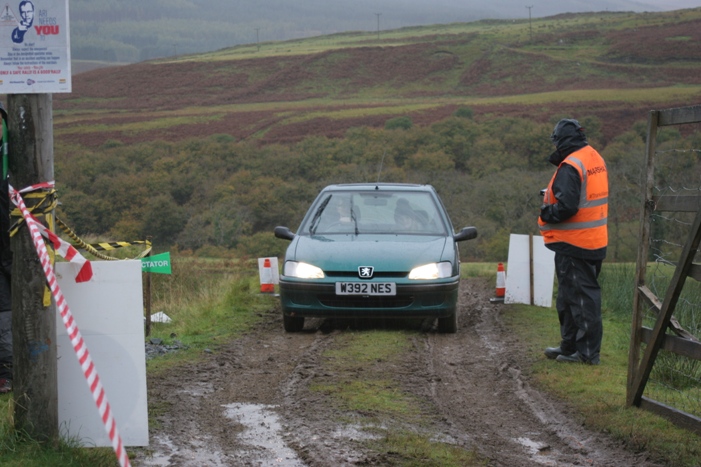THE LATEST INNOVATION FROM LEADING VINTAGE & CLASSIC CAR RALLY ORGANISER BESPOKE RALLIES
Run by John Brigden, ‘Bespoke Rallies’ was arguably the first rally organiser to augment the role of road books by the introduction of GPS navigation, and the latest version of its Garmin-based system draws much praise from all who use it. Now, in another first, it has introduced the ‘Virtual Marshal’, an invention that negates the need for the human timing officials who’ve been a fixture of this branch of motorsport since the days of the 1906 Glidden Tours. Such is the significance of this innovation that a trademark has been registered, and a fully refined version is likely to be offered for sale to competitor organisations as early as 2022.
A sprinkling of Olympic technology
As with their counterparts in circuit racing, rally marshals are a hardy breed who take inclement weather and cursing competitors in their stride, all for the good of the sport. However, their use in professionally organised long distance rallies can be prohibitively expensive. Take, for example, Bespoke Rallies’ 2018 Grand Prix of South America event, which comprised 11,000 kilometres of competition through no less than five countries. Even though (in yet another rallying first) the company used motorcycles rather than cars for transporting its officials from stage to stage, the expense in acquiring the vehicles, preparing them for the event, flying the marshals to and from the UK and paying for their on-event accommodation, sustenance, clothing etc accounted for a significant percentage of the overall cost of running the event. There are practical considerations too, eg the number of timed sections one can include in such a rally is limited to the number of marshals on the ground. All of which made John Brigden further determined to perfect a more practical, affordable solution.
“Five years ago I had the idea of replacing marshals with an electronic system that could track the cars, time them and report all the information back to the vehicles, thereby keeping the co-drivers up to speed and giving crews an idea of how they were performing against their fellow competitors. As a former rally driver and co-driver myself, I was more than aware of the valuable information imparted by marshals at physical control points, but was convinced the right technology could be more effective still. However, finding developers who understood rallying sufficiently to appreciate what was needed proved harder than I’d hoped, and I had a couple of false starts with overseas companies.
“Then I got a chance introduction to Joe Cusdin. Who, it transpired, had been responsible for the 2012 Olympics software which tracked crowd behaviour in order to minimise congestion at the entrances and exits. To my delight, he not only immediately grasped the concept, but left me in no doubt he could create the required system. It took a year to produce a prototype version that was first trialled alongside the real marshals on the Grand Prix of South America. The results were very promising, since when we’ve been steadily refining the device to the point where it was the sole source of timing for our recent Pyrenees and Highland 1000 events, on which it ran faultlessly and impressed the crews with its ease of use. It is no exaggeration to say that it has transformed the way we now run our rallies.”
The technology of the Virtual Marshal (VM), The Complete Rally Timing System, is currently contained within the case of a mobile phone that’s big enough to be visible to both driver and-co-driver, and comes complete with windscreen fixing and USB power cable. The contact-free GPS-based system can be programmed with set timings – eg to get an event under way at the start of the day – but one of its many advantages is that it removes the need for everybody to run to the same schedule, as it times a car between two points whenever the movement occurs. So if crews suffer a breakdown or decide to take a rest en route, they don’t have to worry about racing to catch up and upsetting other traffic or the authorities in the process. The times between the virtual checkpoints ping up automatically, so both driver and co-driver have a constant reference for how they are doing. The system even allows friends and family to monitor the progress of the rally live from their living room.
The benefits over a team of human officials from an organiser’s point of view include:
- A major reduction in cost per event
- The eradication of recording errors and therefore disputes
- The ability to know the whereabouts of all competing cars at all times
- The lack of limits on the number of timed sections
- The speed at which final results can be generated
While currently retaining the technology for its own use, Bespoke Rallies is very aware of the commercial opportunities it brings and, as previously mentioned, will ultimately package it as an app for general sale.

**